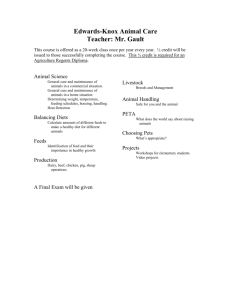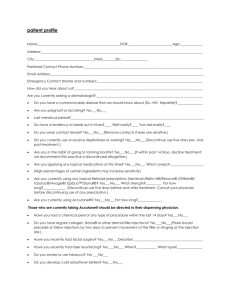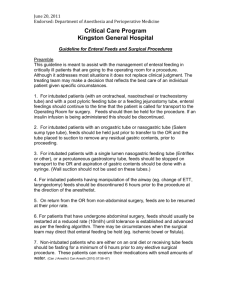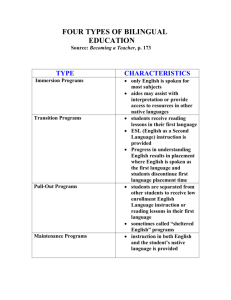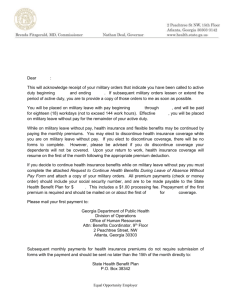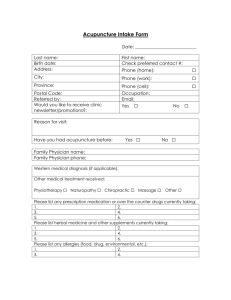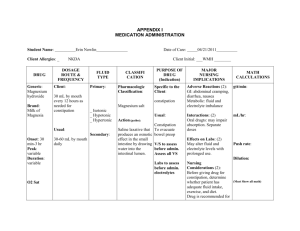enteral feeding: goal feed rates - icu rapid resource
advertisement
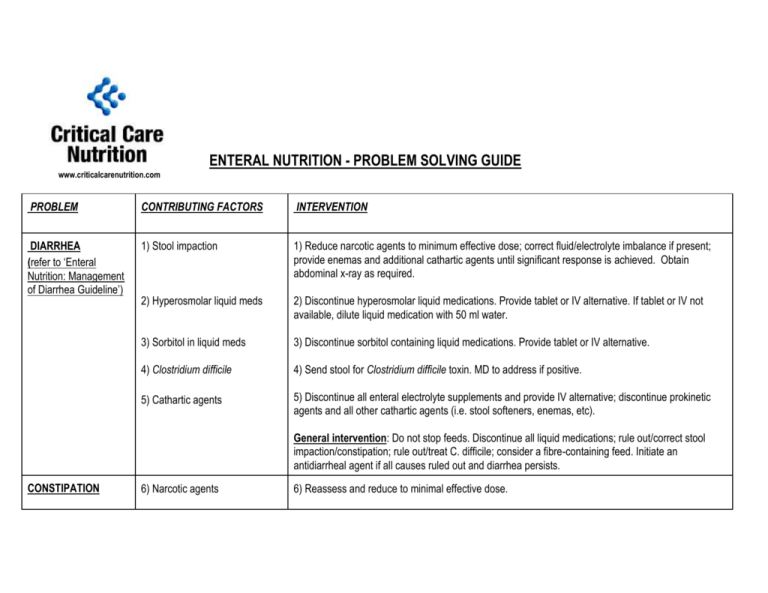
ENTERAL NUTRITION - PROBLEM SOLVING GUIDE www.criticalcarenutrition.com PROBLEM CONTRIBUTING FACTORS INTERVENTION DIARRHEA (refer to ‘Enteral Nutrition: Management of Diarrhea Guideline’) 1) Stool impaction 1) Reduce narcotic agents to minimum effective dose; correct fluid/electrolyte imbalance if present; provide enemas and additional cathartic agents until significant response is achieved. Obtain abdominal x-ray as required. 2) Hyperosmolar liquid meds 2) Discontinue hyperosmolar liquid medications. Provide tablet or IV alternative. If tablet or IV not available, dilute liquid medication with 50 ml water. 3) Sorbitol in liquid meds 3) Discontinue sorbitol containing liquid medications. Provide tablet or IV alternative. 4) Clostridium difficile 4) Send stool for Clostridium difficile toxin. MD to address if positive. 5) Cathartic agents 5) Discontinue all enteral electrolyte supplements and provide IV alternative; discontinue prokinetic agents and all other cathartic agents (i.e. stool softeners, enemas, etc). General intervention: Do not stop feeds. Discontinue all liquid medications; rule out/correct stool impaction/constipation; rule out/treat C. difficile; consider a fibre-containing feed. Initiate an antidiarrheal agent if all causes ruled out and diarrhea persists. CONSTIPATION 6) Narcotic agents 6) Reassess and reduce to minimal effective dose. 7) Dehydration 7) If on a fluid restricted feed change to a standard formula (i.e. 2 kcal/ml feed to 1 kcal/ml feed); add water to the feeding regimen (i.e. 25 - 50 ml water per hour via NG or 100 - 200 ml water Q4H). 8) Immobility 8) Mobilize if possible. General intervention: Continue feeds. Start bowel protocol day 1. DISTENDED ABDOMEN 9) Impaction/constipation 9) See above re constipation. 10) Gas 10) Discontinue all sorbitol containing liquid meds and replace with tablet or IV alternative; mobilize if possible. 11) Small bowel/colonic ileus 11) Reduce narcotic agents to minimum effective dose; discontinue antidiarrheal agents; correct any fluid/electrolyte imbalance; resolve constipation (see above); rule out a medical/surgical cause (i.e. bowel obstruction, gut ischemia, peritonitis, etc). General intervention: Discontinue feeds if suspicious for a medical concern precluding EN (i.e. ischemic bowel). ELEVATED GASTRIC RESIDUAL VOLUMES (residual > 250 ml) EMESIS/ REFLUX 12) Narcotic agents 12) Reassess and reduce to minimal effective dose. 13) Hypokalemia 13) Correct in timely manner. 14) Impaction/constipation General intervention: Do not stop feeds; follow enteral feeding guideline. Initiate IV metoclopramide. If no response after 4 doses, place a nasoduodenal feeding tube (NDFT). 14) See above. 15) Oral suctioning 15) Avoid deep suctioning if possible; dampen cough/gag (i.e. oral lidocaine). 16) Nausea - medications 16) Discontinue problematic medication(s) if possible; provide antiemetic. 17) Nausea - gastritis/reflux 17) Ensure head of bed elevated >45; provide a prokinetc/antiemetic (i.e. IV metoclopramide) and H2 blocker. General intervention: For single episode of emesis associated with suctioning hold EN for 10 minutes. PRACTICE ISSUE 18) NPO (surgical/non surgical procedures with airway protection). 18) Unless specifically contraindicated (i.e. tracheostomy; prone position) feeds should be continued up to the procedure and resumed at the final rate within 1 hour following the procedure. As a general rule NPO periods > 4 hours are to be discouraged. (Note: Approved institutional guidelines should be adhered to). 19) Feed titration 19) Initiate feeds at 25 ml/hr; increase by 25 ml Q4H to goal rate. Refer to ‘Enteral Nutrition Feeding Guideline’. 20) Elevated gastric residuals 20) After two elevated gastric residuals (>250 ml) hold feeds 1 hour; resume feeds after 1 hour as per protocol to a minimum of 25 ml/hr. Initiate IV metoclopramide after first elevated gastric residual volume. Refer to ‘Enteral Nutrition Feeding Guideline’. General intervention: All efforts should be directed at ensuring established policies and procedures are followed. Developed by: J. Greenwood, RD (Vancouver General Hospital) in collaboration with the CCCCPGC (21/7/03).
